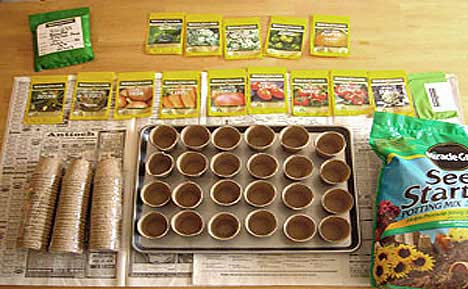Saturday, February 17, 1:00 pm
Get a head start on planning your spring and summer garden. Learn about companion planting and learn different methods for seed starting. At the end of the class you’ll receive a small seed starting tray and some seeds to start.
A $10.00 nonrefundable fee due at registration.





